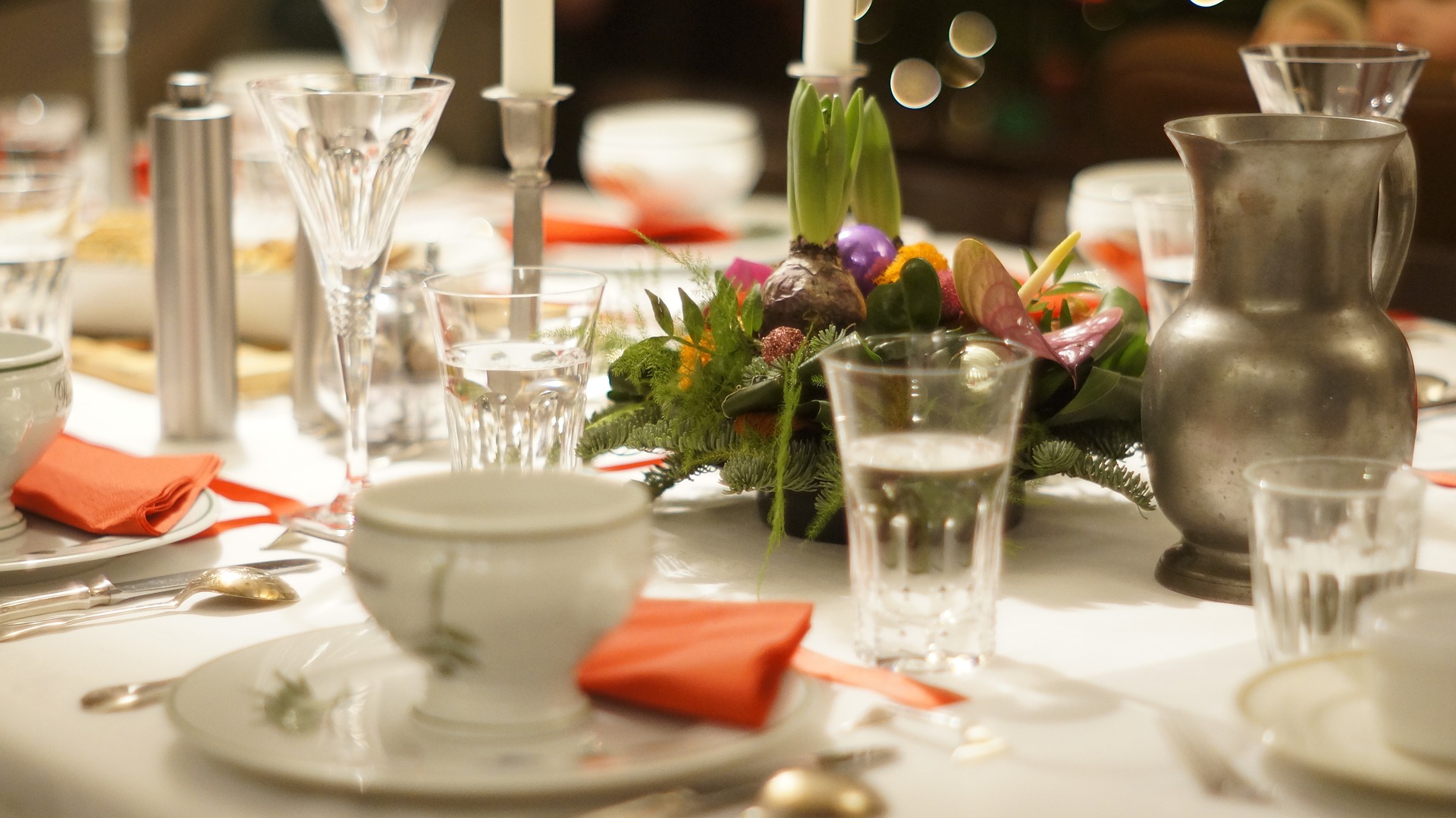- All
- Wisdom
- We Stand on Their Shoulders
- Vocation
- Uncategorized
- Stories Seldom Heard
- Spirituality
- Social Justice
- Prayer
- Peace
- Oneness
- Love
- Letting Go
- Lent
- Joy
- Inspirational Images
- Hope / Healing
- Holy Week
- Gratefulness
- God's Presence
- General News Stories
- Forgiveness
- Finding God
- Faith
- Easter
- Dominican Saints
- Discipleship
- Courage
- Christmas
- Catholic Sisters Week
- Care of the Earth
- Blessing
- Beauty
- Advent
- #justiceOPportunity
Thanksgiving Dinner Luke 14: 15-24
Sr. Patricia Bruno, OP

280th Edition – November 2022
 Even though it is only the first of November, Thanksgiving plans are developing. The guest list is slowly being confirmed. Airline prices have gone up. On many flights, the best seats are already taken. This year because of masks, boosters, and often smaller gatherings, family and friends are conscientiously planning for the holidays. So, it seems that Luke’s Chapter 14 might be an appropriate reflection for this season. The Chapter begins with Jesus in a long conversation around a dinner table. Luke has not randomly placed these events together. Each story/parable builds on the other which gives us time to reflect and examine our own responses. Even though Luke’s Gospel was written around 80-90 CE, Jesus’ parables and etiquette tips seem very modern.
Even though it is only the first of November, Thanksgiving plans are developing. The guest list is slowly being confirmed. Airline prices have gone up. On many flights, the best seats are already taken. This year because of masks, boosters, and often smaller gatherings, family and friends are conscientiously planning for the holidays. So, it seems that Luke’s Chapter 14 might be an appropriate reflection for this season. The Chapter begins with Jesus in a long conversation around a dinner table. Luke has not randomly placed these events together. Each story/parable builds on the other which gives us time to reflect and examine our own responses. Even though Luke’s Gospel was written around 80-90 CE, Jesus’ parables and etiquette tips seem very modern.
Chapter 14 begins with Jesus being invited to dine at the house of a Pharisee on the Sabbath. While Jesus is at the Pharisee’s house Jesus heals a man with dropsy. That action leads to a discussion followed by a warning and a parable. Even though these stories might not have taken place in the sequence Luke has arranged, Luke is making a point.
The parable that follows the healing (Lk 14:7) rings true for us even today. Jesus warns. Be careful not to choose the place of honor, lest someone more important has been assigned that seat. Then and now the front rows or “high” tables are usually saved for the family and/or special guests. (I don’t think Jesus’ comment has contributed to what is often a common Catholic practice – choosing seats in the back rows of the church! Jesus’ comments are too serious to support this practice.)
Jesus also offers those who are dining with him another warning. This parable particularly reminds me of an attitude we might want to have in mind as we invite our Thanksgiving dinner guests. “A man gave a great dinner to which he invited many. When the time for the dinner came, he dispatched his servant to say to those invited, ‘Come, everything is now ready.’ But one by one, they all began to excuse themselves. The first said to him, ‘I have purchased a field and must go to examine it; I ask you, consider me excused.’ And another said, ‘I have purchased five yoke of oxen and am on my way to evaluate them; I ask you, consider me excused.’ And another said, ‘I have just married a woman, and therefore I cannot come.’ The servant went and reported this to his master. Then the master of the house in a rage commanded his servant, ‘Go out quickly into the streets and alleys of the town and bring in here the poor and the crippled, the blind and the lame.’ The servant reported, ‘Sir, your orders have been carried out and still there is room.’ The master then ordered the servant, ‘Go out to the highways and hedgerows and make people come in that my home may be filled. For, I tell you, none of those men who were invited will taste my dinner'” (Luke 14: 16-24).
What is your response to the parable? Does it confuse you? Do you like the parable? If you were sitting at the table with Jesus, what questions would you ask? What do you think Jesus’ response might be?
Now let’s leave the scene of the parable and the table for a minute. What does it say to us right here and now? In what way does the parable speak to us? Are there cautions or directives to which we might pay attention?
The parable is about the reign of God. The host of the banquet is not God. Rather Jesus is telling a story about an ordinary wealthy person who is angered at the fact that he has planned a great banquet and his invitations have been rejected. It’s not hard to imagine the prepared feast. Perhaps it is a wedding celebration. In fact, Matthew frames this parable in his gospel account as a wedding banquet (Mt 22: 1-10). Even in our modern times, this parable has a contemporary feeling. It’s easy to imagine this happening to us. I’m sure many of us have been invited to holiday dinners, anniversary parties or special birthday celebrations and have had to refuse the invitation because of a prior commitment. Even though this is an ancient story some of their excuses sound rather modern.
The host, however, is not very gracious, but his disappointment is understandable. He has a prepared list of special guests and is angry with those who decline the invitation. It’s a parable that helps us imagine what Jesus has said about inviting those who could “not repay your courtesy by inviting you in return” (Lk 14:13). The host ends up inviting “the poor, the crippled, the lame, and the blind” (LK 14:14). The original guest list has changed dramatically from what the host first intended. If we look around the host’s house with these new guests who have arrived from the “open road and the hedgerows,” (LK 14:22) the scene is quite incredible. Let’s stop here for a minute. Reread the parable and imagine the situation.
Instead of viewing ourselves as sitting at the table with Jesus listening to the parable, let’s enter into the parable. Let’s be one of the newly invited guests, or perhaps one of the household servants, or even the host. As we look around, we see long tables filled with food-–meats, poultry, breads, sweets, and fine wines! There are lanterns burning, and music playing. Enjoying this scene, we along with a large gathering of strangers would be awed. Remember, too, originally this was a banquet for wealthy people. The first invited guests had land, oxen to tend, and enough money to throw a respectable wedding. But we who are the “second choice” guests came from the other side of the tracks. What would we look like? Certainly, we, “second choice” guests, are not dressed for the occasion. Most of us have just come from the hedgerows and highways. Many of us probably had never attended a banquet with such luxurious food and drink.
I wonder if we would pinch ourselves to see if we were dreaming. Would we ever begin to feel comfortable enough to dance to the music, relax and enjoy ourselves? Would we rush out to the street to invite a few other friends to the party? If there were a more boisterous crowd of people, would we join them or would we try to quietly move away from them so we would not be conspicuous? Can we imagine wandering through the hallways and laughing at ourselves as we see our reflections in the mirrors or window glass? Would we wrap extra food in the fine linens and stow it in our pockets or satchels when no one was looking? We don’t hear any of this. We don’t even hear that the host is concerned about his property or the conduct of his visitors. In fact, it sounds like it was a perfect party–especially for those “second choice” guests.
It’s a good parable. There are lots of possibilities for our imaginations. There is also a great sense of joy and surprise especially when it is read from the point of view of the “second choice” guests. What a surprise. What a joy to be invited to such a celebration and enjoy such a banquet. This story echoes other parables and sayings of Jesus about the first shall be last and the last first. It is the “last” who realize that everything is a gift – everything grace. It is the “last” who fill the house with laughter and song.
Joy is one of Luke’s major themes. Those who realize what God has done for them, Luke reminds us, cannot help but be filled with deep appreciation and gratitude. The most precious gifts we have–our lives, our families, those who stand by us in good and difficult times, our beautiful world with its fragile and changing seasons, and our faith–are all “gifts”. Like the uninvited guests in the parable, we have done nothing to earn any of the life and grace that have been given to us. We, like the newly invited guests, have been invited to a banquet not because of our merits, but because of the goodness and generosity of the Divine. We have been warmly welcomed even though we are not properly dressed. If we really understand this mystery, it will change our lives.
The question for us is, have we experienced this parable, or have we just read it? If we have truly experienced it, it will have huge ramifications for our lives. It’s more than just including those who are seldom invited to our family, social, and/or professional gatherings. If we realize what God has done for us out of God’s generosity then we will not be able to stop ourselves from doing the same for others. Out of a spirit of justice that is ignited by gratitude, we will find ourselves asking questions at our family dinner tables, our Pastoral Councils, School Board meetings and our voting places. Who will be affected by the decisions we make around our family tables, boardrooms, and voting sites? What difference will our decisions make in the lives of the poor? Oh, and who will be invited to join us at our Thanksgiving table?
Footnotes
1. I have chosen to use the word “reign” in place of “kingdom”. Reign encourages us to think in broader terms, beyond boundaries. Reign speaks of God’s presence as a power. God’s reign is where God’s power is shown. God’s reign is happening when our attitudes move us to actions that reflect God’s ways God’s will, and God’s desire for us to act mercifully and justly towards all of creation.
